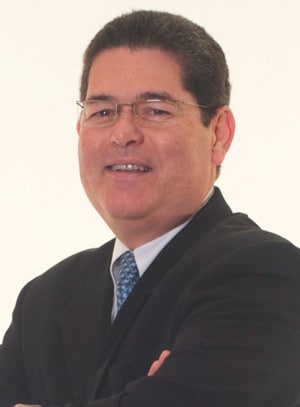HISTORY AT A CROSSROADS
By Valentina Pasquali
Rubens Amaral is the incoming CEO of Bladex, the Foreign Trade Bank of Latin America, a supranational institution that serves the capitalization needs of banks and promotes foreign trade across the region.

Global Finance: As a multinational bank, Bladex has unique insights into Latin America’s finances. What are the challenges and opportunities facing the region today?
Rubens Amaral: Our region continues to experience high growth levels, which are strengthening domestic markets and generating higher demand for banking products and services. We also see an improved distribution of income. There remains a deficit of infrastructure investment, but regional integration is increasing thanks to the expansion of so-called “multilatinas.” There are many opportunities: from project finance to finance for the regionalization of companies, from trade finance in local currency to products for a fast-growing consumer base. But the challenge of keeping healthy credit quality remains, in my view, the most important one. If we look back to past financial crises, we see one common denominator: poor credit quality as a consequence of aggressive growth combined with lax risk management. We need to learn our lesson to ensure that this new decade becomes known as the decade of Latin America.
GF: Brazil is a hot topic. What are its greatest strengths and weaknesses?
Amaral: Brazil has become the sixth–largest economy in the world. The improved distribution of income, increased trade, discipline in controlling inflation and fiscal accounts, and high levels of FDI have all combined to lay the groundwork for a virtuous process of growth. Events such as the soccer World Cup and the Summer Olympics provide a base for growth, as investments in infrastructure materialize. Local capital markets are improving. As for weaknesses, Brazil needs to continue working at its very complex tax system, high interest rates and high labor costs.
GF: What do you think are the most interesting countries beyond Brazil?
Amaral: Peru, Colombia, Central America and Panama will continue to benefit from sustained growth. A common strength is their financial systems and banking supervision. These countries are investing in infrastructure and foreign trade, important engines of economic growth.
GF: What are the key risks over the next 5, 10 and 25 years?
Amaral: We are at an important crossroads in history. The world is still grappling with the consequences of the worst financial crisis since the Great Depression. This makes it difficult to discuss risks for the next year, let alone for the next 25 years. If the world has changed, the needs of human beings haven’t. Emerging and developed economies need to focus on the challenge of feeding a growing population and improving social security to provide for people that live healthier and longer lives.



